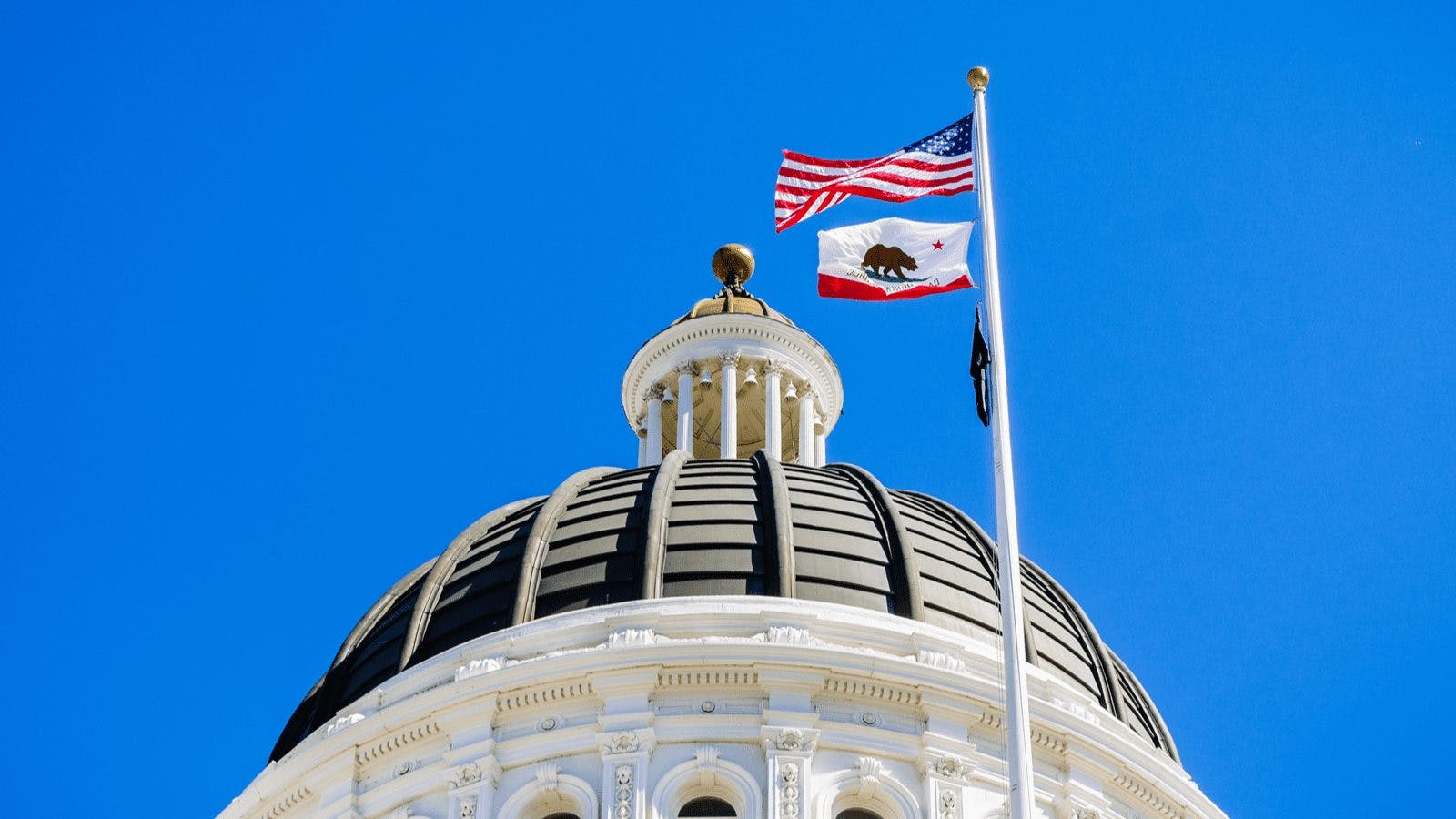To Make Bitcoin Legal Tender in CA, Bitcoiners May Have To Rewrite Constitution
Making bitcoin legal tender may also clear up tax issues around the cryptocurrency, advocates say

California State Capitol | Source: Shutterstock
- A bill has been introduced in the California legislature that could establish bitcoin as legal tender in the state
- It is not the first time a state has introduced such a measure, and a constitutional amendment might be needed before it is passed
California bitcoiners are hoping to make the state the first to accept the cryptocurrency as legal tender, even if it means going up against the US Constitution.
“This is a bottom-up approach, just like bitcoin is a bottom-up approach,” said bitcoin advocate Dennis Porter, who is working to advance the bill. “The states have the final say over what is in the Constitution, and if we have to, we’ll go to an Article V and we’ll rewrite the Constitution.”
Republican State Rep. Jordan Cunningham introduced assembly bill 2698 February 19. The bill has since been referred to committee.
The goal is to establish bitcoin as legal tender in the state, but the process is complicated, according to Ian Calderon, former California State Assembly majority leader and principal of political advocacy group Majority Advisors.
“What we are working through right now is that we have to be careful about how we say it, because it could be detrimental to list bitcoin or ethereum, or any other specific asset, because it’s important to leave flexibility for businesses and local governments that would accept cryptocurrency as payment,” Calderon said.
According to the Constitution, defining “legal tender” is not the domain of state lawmakers, said Preston Byrne, partner at law firm Anderson Kill.
“The move is largely symbolic,” Byrne said. “The coinage clause of the Constitution means that the power to determine what is and isn’t legal tender in the United States is the exclusive province of Congress.”
Some businesses in California and across the US currently accept bitcoin or other digital assets as a means of payment. Establishing a clear law is essential, though, Calderon said.
“I know of a county that wants to put in place a pilot program for virtual currencies, but their concern is that down the line, after they’ve put time, energy and resources into developing this pilot program, the state comes in and yanks the rug out from underneath and says ‘No, you can’t do this — this isn’t a legitimate,’” Calderon said.
Providing clarity will allow businesses and governments to work within regulatory guidelines, he added. The bill will also serve to clear up issues around taxing cryptocurrencies, Porter said, which may slow crypto adoption.
“It’s very important that we get to a place where the average person, someone who’s trying to pay for their groceries, someone who’s trying to pay for rent in digital assets can do so without a massive tax or accounting burden,” Porter said.
As the assembly bill was introduced, a similar bill was presented to the California Senate. Senate bill 1275, introduced by Democrat Sydney Kamlager, would allow California residents to pay for state services using cryptocurrencies. Calderon and his team support this bill as well.
“We’ve started working directly with [Kamlager], helping her craft her language for her bill as well, so that we could have two efforts in this space, one in the senate, one in the assembly, to try to increase our odds of getting something under the governor’s desk,” he added.
California is not the first state to consider making bitcoin legal tender. In January, Arizona State Sen. Wendy Rogers introduced a bill that would legalize bitcoin as legal tender in the state.
“At best this is an indication as to what state legislators are thinking, and tomorrow’s federal legislators are often found getting their foundational training in today’s state legislatures,” Byrne said.
The effort in California is about making a broader statement, Calderon agrees, but seeing the bill pass is still the goal.
“The introduction alone, and the legitimacy of it moving through a couple committees, maybe getting out of the assembly, going to the Senate…even if the governor vetoes it, this is huge,” he said. “People want certainty, they want consumer protection, they want to know what they can do and what they can’t do. This is a part of that effort.”
Get the news in your inbox. Explore Blockworks newsletters:
- The Breakdown: Decoding crypto and the markets. Daily.
- 0xResearch: Alpha in your inbox. Think like an analyst.






